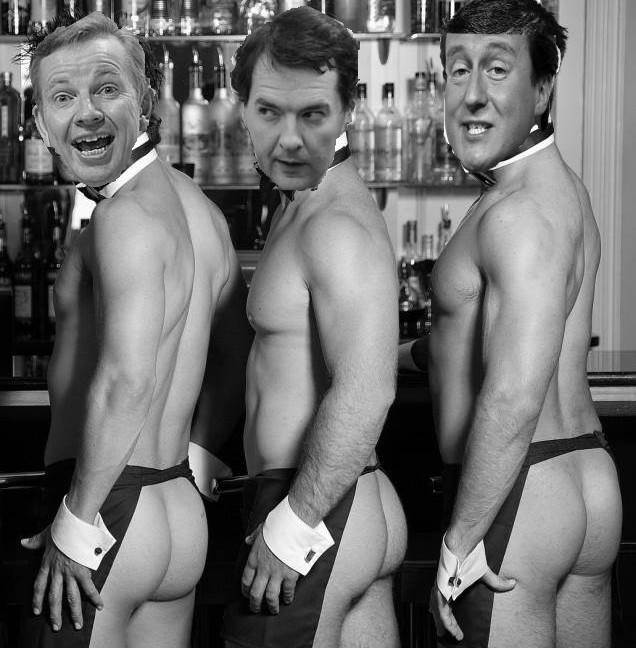Following the nationalisation of the banks Northern Rock and Bradford and Bingley, the government has announced plans to take another public institution into public ownership. “In view the crisis of confidence surrounding her, we have decided to nationalise Amy Winehouse,” Chancellor Alistair Darling yesterday told the House of Commons. “Recent weeks have seen an alarming fall in the value of her celebrity, raising serious doubts as to her viability. Consequently, we have decided that we cannot afford to allow an established performer like Miss Winehouse to collapse and go under – the economic effects would be catastrophic.” The move follows a disastrous few months for the singer, during which she has been kept off of the tabloids’ front pages by the economic crisis and US Presidential elections. “It’s been absolute hell for her – the paparazzi have been deserting their positions outside her house in droves,” explains Roger Strappton, showbiz editor of the Financial Times. “It doesn’t matter what she does – drunken pub brawls, drugs overdoses, even singing – she just can’t make the headlines like she used to. Believe me, the public soon lose interest in celebrities if they aren’t seen to be doing or saying something outrageous at least once a week.” The government’s hand was eventually forced by mounting speculation in the popular press that the singer’s inability to continue performing in the face of her continuing drink and drug problems, might force her into rehab. “The threat to Britain’s alcoholic beverages industries was colossal,” says Strappton. “With the current economic crisis and rising prices, sales are already down, the Treasury just couldn’t afford to have one the country’s main consumers taken out of the game! Think of the tax revenues they’d have lost!” In addition to losing Winehouse’s personal alcohol consumption, ministers feared that without such a powerful role model, Britain’s youth might also be discouraged from binge drinking. “According to our research, excessive alcohol consumption would soon lose its lustre if young drinkers didn’t regularly see pictures of glamourous celebrities like Amy Winehouse throwing up in gutters,” The Chancellor told the Commons. “Without such encouragement they could easily be lured away to alternatives like glue-sniffing. All we would be left with to support the drinks industry would be hardened alcoholics and the socially maladjusted.” Under the Treasury initiative, Winehouse will receive an immediate injection of alcohol, via a funnel, to get her off her feet, followed by regular doses until the government is confident that she is incapable of standing on her own two feet unassisted. However, Darling was keen to emphasise that the deal would not include the supply of class A drugs and that it would require Winehouse to visit three different pubs a night at least four times a week. “With pubs closing at a rate of five a week, they desperately need the boost in sales a visit from Winehouse can generate,” he observed.
Needless to say, the proposed nationalisation has come under fire from the opposition benches, with shadow chancellor George Osborne questioning why taxpayers should have to foot the bill for Winehouse’s future inebriation. “Surely the drinks industry which, after all, must bear part of the blame for this situation, should be the ones to come up with a financial rescue package?” he asked Darling at Question Time. “This sets a dangerous precedent – every alcoholic and down and out will now be expecting to be nationalised and have their drinking subsidised by the State.” However, the Treasury is adamant that a private rescue bid would only have further weakened the already precarious finances of the alcohol industry. “We only came to this decision after exploring all other avenues for the rescue of Miss Winehouse, including a merger with another showbiz star,” retorted the Chancellor. “We held extensive talks with both Joss Stone and Lily Allen over the possibility of one of them buying out Amy Winehouse. However, unlike Cliff Richard’s recent takeover of Pete Doherty, neither of these performers felt Winehouse had anything to offer them. Whereas Cliff Richard has successfully given himself an edgy new image to enhance his appeal to modern youth by adopting Doherty’s silly hat, bad teeth and anti-social habits, all Winehouse could offer Stone or Allen was bad hair and a violent jailbird husband.” Nevertheless, Darling is confident that the government will eventually be able to recoup its investment in Winehouse once she is again permanently inebriated. “We are confident that this will only be a temporary measure,” replied Darling. “Once confidence in Miss Winehouse’s drinking abilities has been restored, we are hoping to invite private bids for her.” Darling also wouldn’t rule out the possibility of taking other entertainers into public ownership. “Our failure to nationalise Oliver Reed in the 1970s caused grievous harm to this country,” he reminded MPs. “His premature death deprived us of a fine role model for young working class hell raisers and binge drinkers. If only we had ensured that he was adequately financed and his alcoholic binges properly regulated, then he would still be entertaining the nation today with his violent and misogynistic drunken antics.”
Critics of the Winehouse nationalisation claim that the government is less interested in its stated aim of saving the country’s drinks industry than in bolstering its own finances. “The loss of tax revenues resulting from the fall in alcohol sales is colossal,” notes Tory back bencher Ivan Dipshyte. “Obviously it’s in their interests to encourage binge drinking by any means possible – the increase in tax revenues will far outstrip the amount of money they’ve had to spend on propping up the likes of Amy Winehouse.” Indeed, Dipshyte believes that once the number of young people hooked on binge drinking has increased sufficiently, the Treasury will announce a steep increase in alcohol duty, so as to maximise its revenues and fund a pre-election cut in income tax. “It’s disgraceful that this government is willing not only to sacrifice the livers of our young, but also to encourage rampant alcohol-fuelled anti-social behaviour, in the pursuit of its discredited fiscal policies,” he declares. The Treasury has rejected such allegations, claiming that the Tories’ interest in restricting binge drinking has nothing to do with health or social concerns. “The truth is that they want such drunken pleasures to be restricted to the rich and privileged, drinking in their private clubs,” says the Chancellor. “We believe that everyone, regardless of social class or income, should have an equal opportunity of becoming a raging alcoholic.” He also claimed that the nationalisation of Amy Winehouse was essential to boost the number of British drinkers. “The only alternative would be to continue our previous policy of importing binge drinkers from Poland and the Baltic states in order to prop up the alcohol industry,” he said. “If we aren’t careful, excessive drinking will be another skill lost to this country and we’ll find ourselves entirely dependent upon foreign alcoholics to enliven our town centres with their moronic escapades.”











